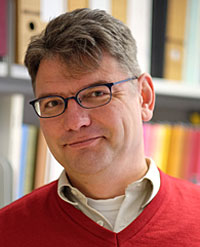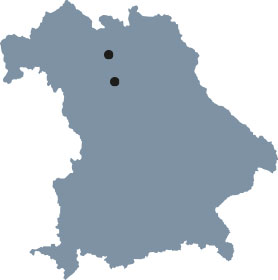Cultural Studies of the Middle East
Cultural diversity and historical entanglements have shaped Middle Eastern societies to this day. Dynamics and diversity of these cultures are subject of the Elite Graduate Program “Cultural Studies of the Middle East”. Countering reductional tendencies, the program focuses on the historical roots and cultural richness of Islamicate cultures in the Middle East, and their entanglements with each other.
| Degree | Master of Arts |
| Duration of study | Four semesters (8 Semester part-time) |
| Place of study | Bamberg, Erlangen |
| Admission requirements | B.A. in a relevant academic field (application also possible during the final degree phase) or equivalent foreign degree with good or excellent marks (German equivalent 2.5 or better). B2 proficiency in one or more of the following: Arabic, Persian, Turkish, or Hebrew German language CEFR B1 (level B2 has to be verified during the first semester) English language C1 proficiency |
| Language of instruction | German or English |
| Head | Prof. Dr. Lorenz Korn |
| Coordinator | Dr. Schayan Gharevi Contact the coordinator |
| Further Information | Website Cultural Studies of the Middle East |
Transcultural Entanglements of Islamicate Cultures
The core philologies of the Middle East (Arabic, Persian, Turkish and Hebrew) provide a basis for further studies on diversity and historical change in this region. The interdisciplinary and transcultural approach of this program offers the opportunity to analyze interconnections between diverse Middle Eastern cultures, and with related minority cultures, as a long-term phenomenon.
Studying under excellent conditions, students will acquire a profound methodological background and will experience research-oriented approaches. Students participate in the shared foundational modules, and then select one of five areas of specialization: History, art and archaeology, religious studies, language and literature, linguistics.
A further core component of the program is the English language module ‘Theory and Methods’, in which students organize and conduct their own workshop on a selected interdisciplinary topic. Students also benefit from visiting scholars with an international background. Interdisciplinary workshops, and specialized soft skills courses enhance the study program, so that our graduates are excellently prepared for a PhD. The presentation of preliminary results of research on expert conferences is actively supported.
The bilingual Elite Graduate Program offers intensive academic supervision by an exceptionally broad spectrum of researchers and experts, with core staff from both the universities of Bamberg and Erlangen, as well as regular visiting academics.
It is the first MA-program in the realm of Middle Eastern studies that is in a position to provide students with opportunities unavailable in similar programs. Our graduates are highly enabled to debate critically and to communicate in academic settings: They professionally conduct excellent, interdisciplinary research – skills essential for continuing on at the PhD level and an optimal preparation for an academic career.


An interdisciplinary master’s program with such a variety of specializations in the field of oriental studies is unique in Germany. Our graduates acquire comprehensive competences – while personal points of interest do not get a raw deal.
Prof. Dr. Lorenz Korn


